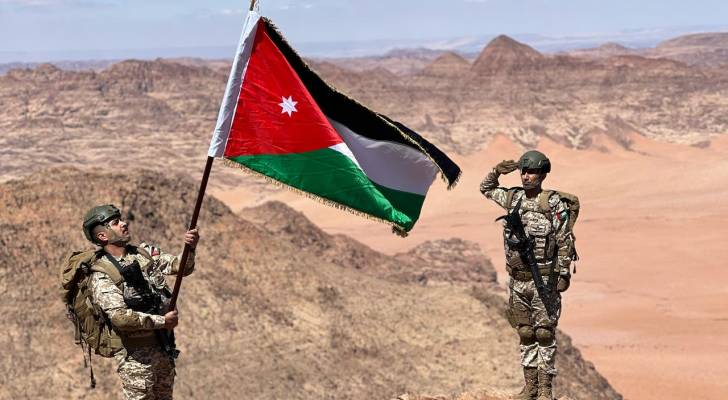'Israeli' media reacts to Jordan’s reintroduction of compulsory military service
Jordan’s move to bring back compulsory military service after 35 years has sparked widespread coverage in 'Israel', analysts note that the decision carries political, social, and regional implications that extend beyond Jordan’s borders.
Media Coverage in 'Israel'
Haaretz reported on August 18, 2025, describing the move as a precautionary step to strengthen Jordan’s defense capabilities. Military analysts cited by the paper noted that, as a neighboring country with a long shared border, Jordan is preparing for complex security scenarios, especially amid tensions in the West Bank and Gaza.
While the decision does not pose a direct threat due to the 1994 peace agreement, according to the report, Haaretz suggested it could reinforce Jordanian national identity, potentially affecting bilateral relations.
Read more: Public in 'Israel' admires Jordan’s draft, criticizes Netanyahu: Hebrew media
Yedioth Ahronoth on August 19 linked the move to public reactions in Jordan to statements made by 'Israeli' Prime Minister Benjamin Netanyahu. The paper highlighted that Jordan views Netanyahu’s “Greater Israel” rhetoric as a direct threat to its sovereignty.
Officials emphasized that the reintroduction of military service has been in planning for over a year, following Crown Prince Hussein’s directives, rather than as a direct response to 'Israel'.
Meanwhile, Walla reported on August 18 that the reinstatement of conscription also reflects Jordan’s intention to strengthen its reserve forces in anticipation of potential threats from Syria or the West Bank.
The report noted that 'Israel' is monitoring both the number of recruits and the nature of their training and may seek diplomatic assurances to avoid misunderstandings.
The Jerusalem Post described the decision as addressing youth unemployment and declining morale, alongside broader regional tensions, while stressing Jordan’s commitment to honoring the peace agreement. Analysts told the paper that the move carries a symbolic message of national unity more than an immediate military purpose.
Analysis of the 'Israeli' perspective
- Security Implications: Analysts agree that mandatory service does not present an immediate threat but could shift regional power dynamics in the long term if the program expands.
- Domestic Motivations: The program is also seen as a step to address unemployment and promote discipline among Jordanian youth.
- Response to Netanyahu: Most Hebrew sources linked the decision to Netanyahu’s “Greater Israel” rhetoric, viewing it as a political message asserting Jordanian sovereignty.
Potential consequences
- Jordan-'Israel' Relations: Expanding the program or introducing advanced training could raise sensitivities, likely encouraging diplomatic dialogue to prevent tension.
- Regional Stability: Strengthening Jordan’s defense capabilities may contribute to stability against challenges from Syria and Iraq, though it might be interpreted as a subtle challenge to 'Israel'.
- Internal Jordanian Impact: The program is expected to reinforce national identity and address economic and social challenges, though some youth groups may oppose it.
In conclusion, Jordan’s reinstatement of compulsory military service carries political, security, and social significance.
While 'Israel' seeks to downplay its impact as an internal Jordanian matter, Hebrew analyses reveal an underlying concern over long-term consequences, particularly amid regional tensions and Netanyahu’s recent statements.
For Jordan, the decision sends a clear message: enhancing national sovereignty and military readiness in the face of potential challenges.




